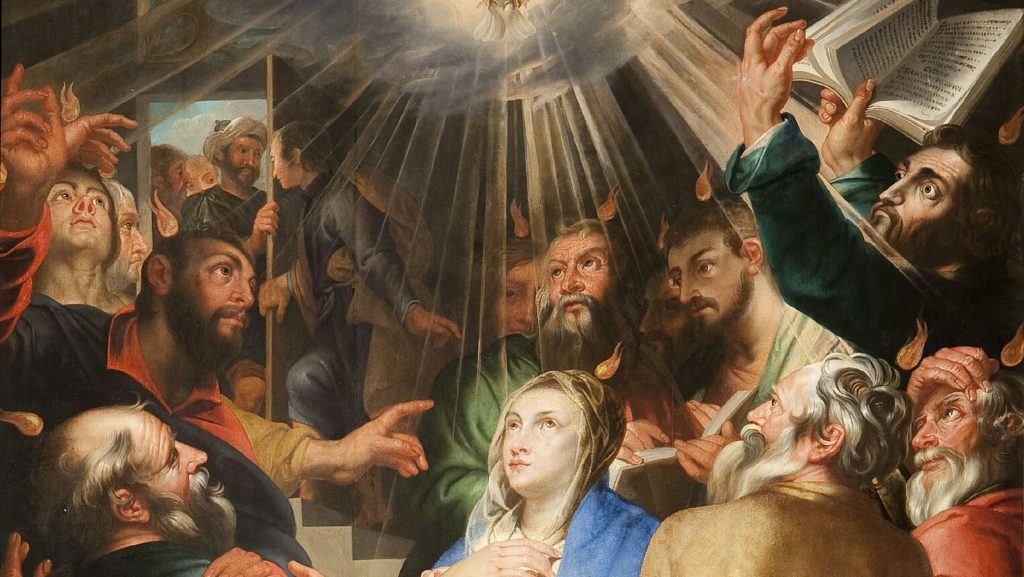Pentecost is coming, and I hope you’re planning to celebrate, because it’s perhaps as important as Christmas and Easter.
Does that shock you? Hear me out.
Pentecost is a supremely important day, and I think it is sorely neglected.
Of all the feasts on the old Jewish calendar, only two have endured as Christian feasts. The first is Passover, which we English-speakers call “Easter,” but almost everyone else calls by the same name as the Jewish holiday, Pesach: Pasqua in Italian, Pascua in Spanish, Pascha in Greek, and so on.
The second Jewish feast to remain on the Christian calendar is Pentecost.
These two, with Sukkot, the “Feast of Booths,” were the three pilgrimage festivals of ancient Judaism. The Book of Exodus required all Israelite males to celebrate these three feasts in the holy city, Jerusalem (see Exodus 23:14–17).
Passover and Pentecost were inextricably bound to one another. In fact, Pentecost gets its name from its relation to Passover. Pentecost comes from the Greek word for “fiftieth”; Pentecost is the 50th day after Passover.
On Passover, Jews in the first century commemorated the Exodus — Israel’s liberation from slavery in Egypt. On Pentecost, they celebrated God’s gift of the Law at Mount Sinai. The first event was ordered to the second. What was begun in one is completed in the other.
The Israelites were set free not so they could wander aimlessly, but so they could walk in God’s ways — the ones set out for them in the Ten Commandments. In the Old Covenant, Passover happened for the sake of Pentecost. Passover was arguably the more solemn commemoration — the highest point on the calendar — but it required the later feast for its completion.
We find the same dynamic at work in the New Covenant. Jesus’ Passover points forward to fulfillment with the gift of the Spirit in the Christian Pentecost. In the Fourth Gospel, we see Jesus repeatedly making this point, and he does so at the Last Supper, his Passover meal! He tells his disciples that the Counselor, sent by the Father, would bring the work of Jesus to completion (John 14:16, 26; 15:26; 16:7).
Thus, in a very real sense, all of our holy days point to Pentecost. Why, after all, did the Eternal Word take flesh in Jesus Christ? What was the reason for the Lord’s incarnation? And then why did he suffer and die?
He did all this — he took up a life like ours — so that he could give us a life like his. He did all this so we could receive the Holy Spirit, the Third Person of the Trinity, and live forever in communion with the Father. He wanted us to be “partakers of the divine nature” (2 Peter 1:4), sharing mysteriously in God’s eternal life.
This is what we see happening in the Acts of the Apostles, chapter 2. The Spirit comes in power, descending as tongues of fire, the disciples are transformed, and the Church is born. Suddenly, divine life is available to all the world — available to you and me.
So how will you celebrate?

